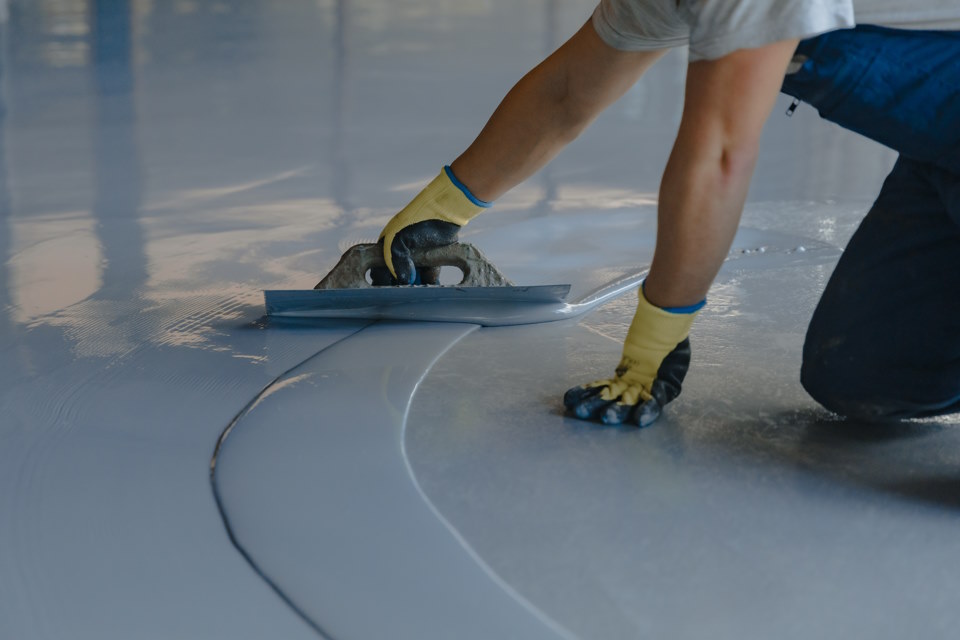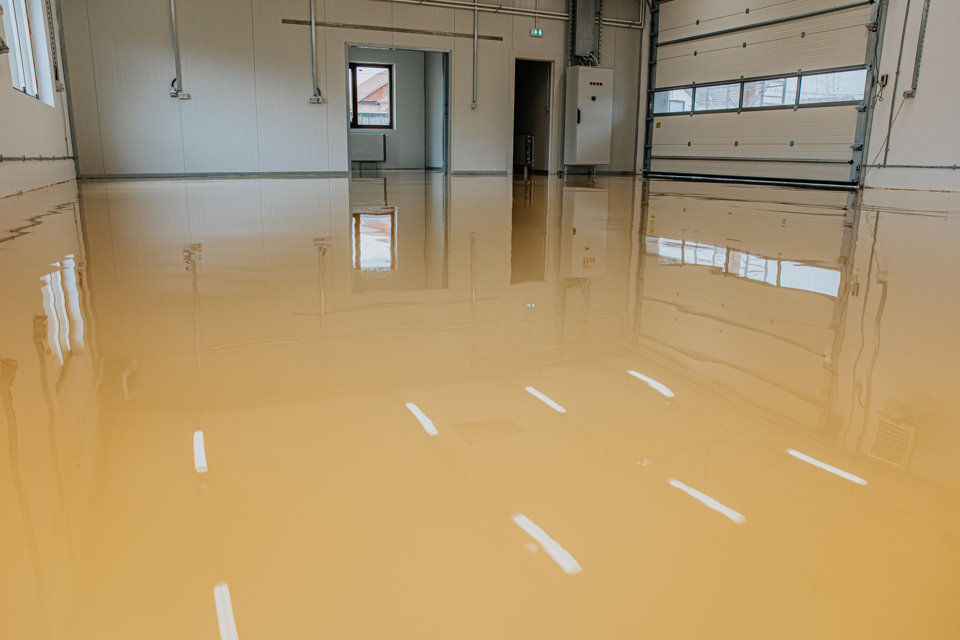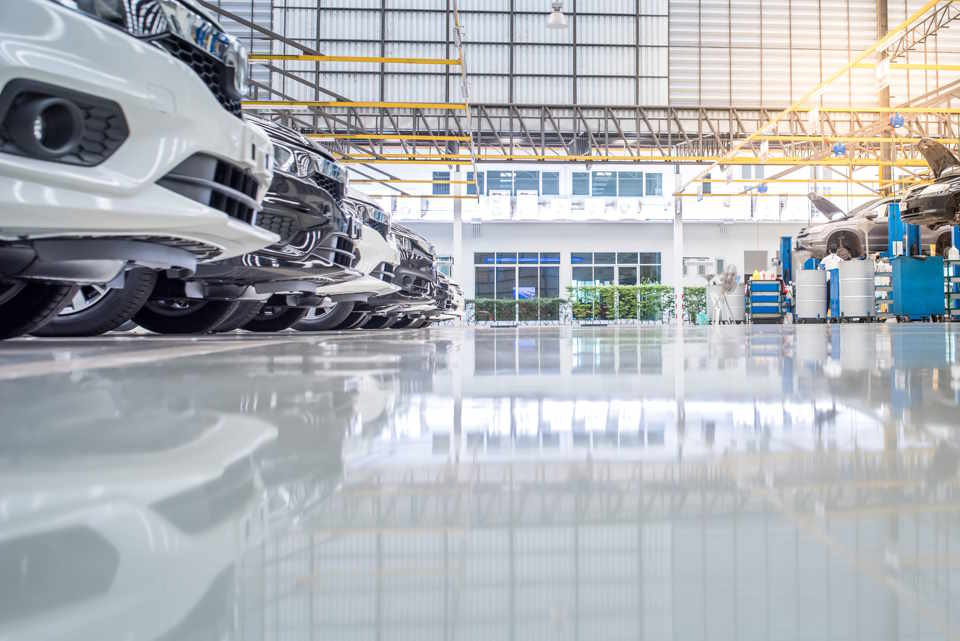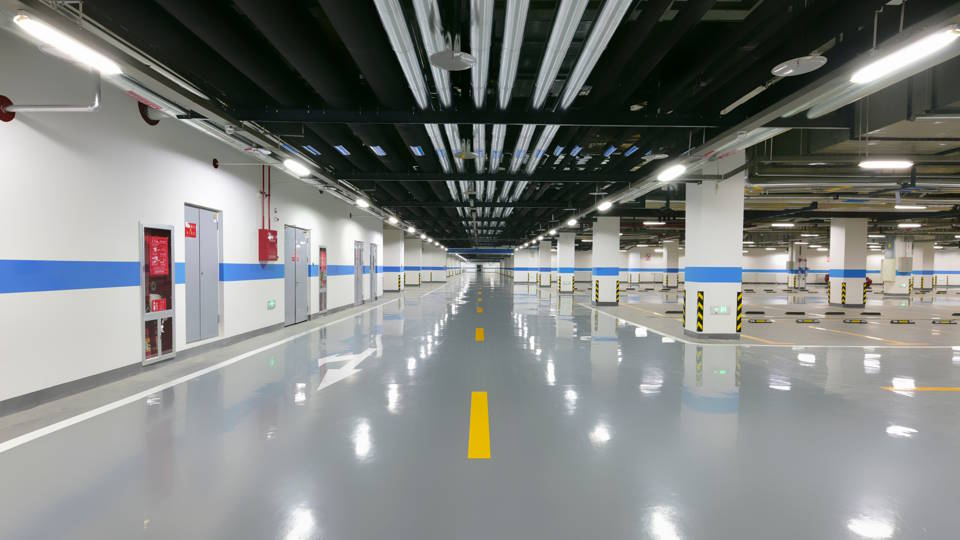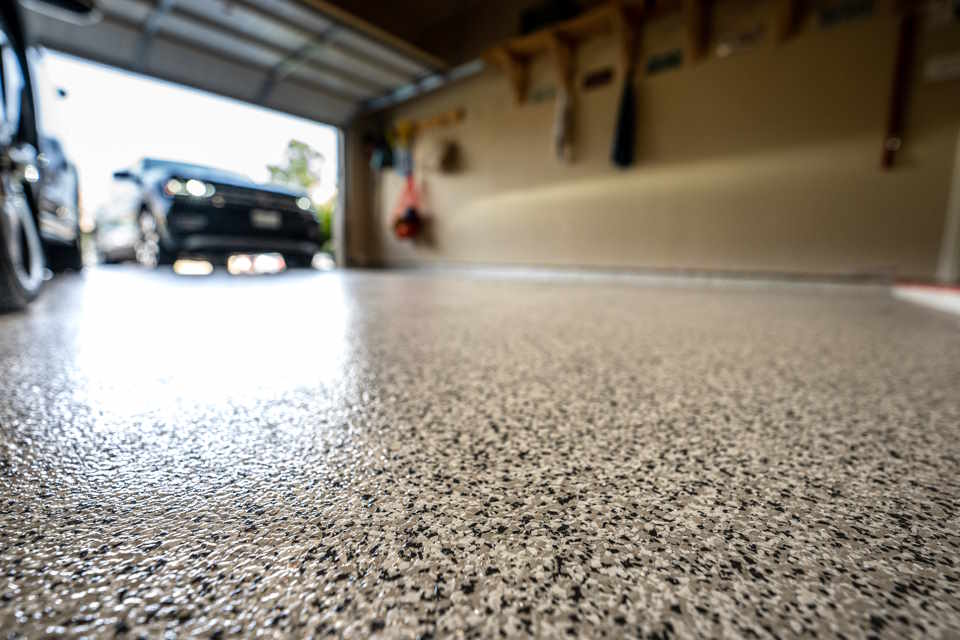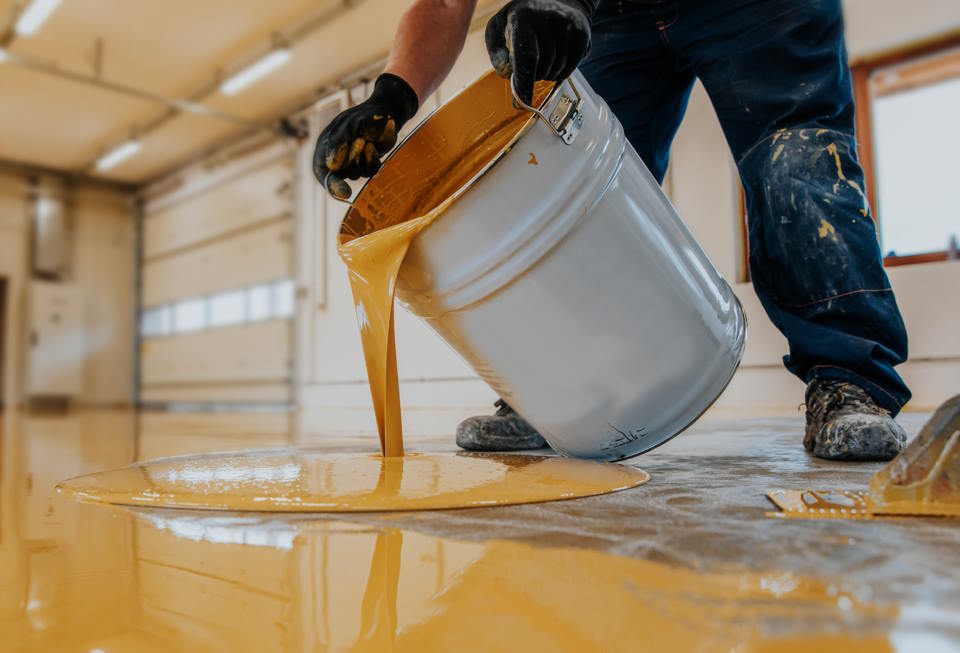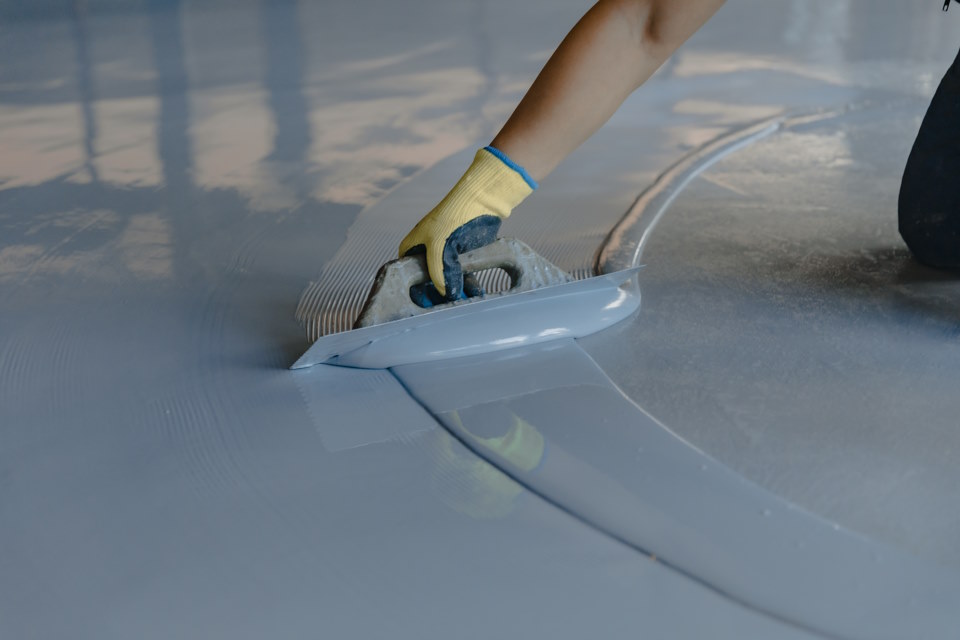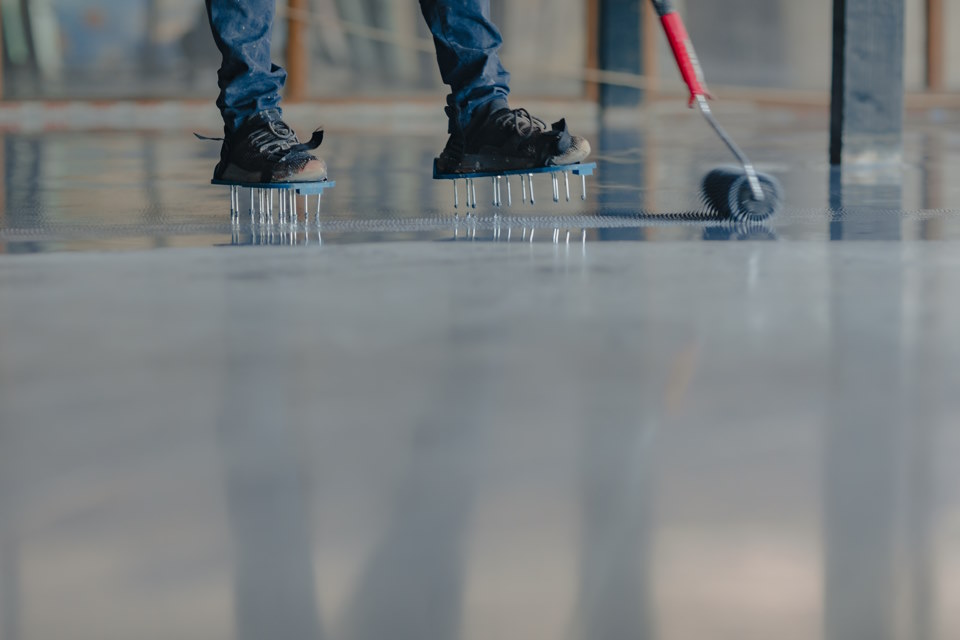Epoxy is a popular flooring material that has been in use for many years. It is a mixture of a resin and a hardener, which when combined create a strong and durable material. Epoxy flooring is commonly used for commercial, industrial, and residential applications due to its resistance to chemical spills, stains, and abrasions. The purpose of epoxy flooring is to provide a durable and long-lasting surface that can withstand heavy traffic, machinery, and harsh chemicals. While it has many benefits, it also has some disadvantages, such as being prone to cracking and being slippery when wet. The lifespan of epoxy flooring depends on various factors, such as the type of resin and hardener used, the quality of the installation, and the amount of foot traffic or machinery use. Epoxy flooring is often considered a better option than tiles, as it is more durable and requires less maintenance. However, if epoxy flooring gets wet, it can become slippery and potentially hazardous. Despite these drawbacks, epoxy flooring is widely regarded as a good idea due to its many benefits, including its durability, resistance to chemicals and stains, and ease of maintenance.
Introduction
Epoxy flooring is a type of flooring that is becoming increasingly popular in many households and commercial buildings. It is made of a two-part epoxy resin that, when mixed together, forms a hard, durable surface. One of the main benefits of epoxy flooring is its ability to withstand heavy foot traffic and other types of wear and tear.
Epoxy flooring is also known for its versatility. It can be applied in a variety of different colors and patterns, depending on your preferences and needs. This means that it can be used to create a unique and custom look in any room of your house, as well as in commercial spaces such as restaurants, offices, and retail stores.
Another benefit of epoxy flooring is that it is easy to maintain. The surface is non-porous, which means that it is resistant to spills and stains. It is also resistant to moisture, which makes it ideal for use in areas that are prone to spills and water damage, such as kitchens and bathrooms. Additionally, epoxy flooring is easy to clean with just a damp mop or cloth, and it does not require any special cleaners or detergents.
- Epoxy flooring is a popular choice for many reasons, including:
- Durability
- Versatility
- Easy maintenance
If you are considering installing epoxy flooring in your home or business, it is important to work with a professional contractor who has experience with this type of flooring. They can help you choose the right color and pattern for your space, as well as ensure that the installation is done correctly. With proper maintenance and care, epoxy flooring can last for many years, making it a smart investment for any property owner.
What Is the Purpose of Epoxy Flooring?
Epoxy flooring is a type of flooring that is made up of epoxy resin and a hardener coating. It is mainly used in industrial and commercial settings due to its many benefits including durability, strength, and resistance to chemicals and staining. But what is the purpose of this popular flooring option, and why is it used so often?
Firstly, one of the main purposes of epoxy flooring is to provide a strong and durable surface that can withstand heavy foot traffic and machinery. For example, it is commonly used in warehouses, factories, and auto repair shops where heavy equipment may be present. The tough and resilient nature of epoxy is perfect for these environments as it can take on the weight and pressure of these machines without being damaged.
- Another purpose of epoxy flooring is to provide a safe and hygienic environment. Due to its smooth and even surface, it is easy to clean and maintain, reducing the risk of accidents that can occur with uneven surfaces or dirt buildup. Epoxy also has antimicrobial properties, which make it resistant to bacteria and germs, making it ideal for places like hospitals, laboratories, and food processing plants.
- Finally, epoxy flooring has aesthetic benefits, making it an appealing option for many commercial and industrial settings. With a variety of colors and patterns available, epoxy can be customized to match any interior design scheme, enhancing the overall look of a space.
The purpose of epoxy flooring is to provide a strong, durable, safe, and aesthetically pleasing surface in commercial and industrial settings. With its many benefits, it is no wonder that epoxy is becoming a popular choice for flooring options around the world.
What Are the Disadvantages of Epoxy Tiles?
Epoxy flooring has widely been used in industrial environments due to its durability and resistance to chemicals and moisture. In recent years, it has gained popularity in residential and commercial spaces as an alternative to conventional flooring options. Although it has several advantages, it is essential to consider the disadvantages of epoxy tiles before making a decision.
- Preparation: One of the significant drawbacks of epoxy tiles is the preparation process required before installation. The surface needs to be clean, dry, and free of any debris or existing coatings. This might involve the removal of existing flooring or surface treatments, which can be time-consuming and expensive.
- Application: The application of epoxy tiles requires a certain level of skill and expertise. A poorly installed epoxy floor can result in bubbling, cracking, or peeling, which can compromise the durability of the floor and necessitate repairs or replacement.
- Maintenance: Epoxy flooring can be challenging to maintain. Although it is resistant to spills and stains, it can be damaged by abrasive cleaners or solvents. There is also the risk of chipping or scratching if heavy objects are dropped on the floor.
It is important to weigh the advantages and disadvantages of epoxy flooring before making a decision. Although it has several benefits such as durability and low maintenance, the disadvantages such as preparation and application process, and maintenance requirements should also be considered.
How Long Does Epoxy Flooring Last?
Epoxy flooring is a durable and long-lasting option for a variety of settings, including commercial, industrial and residential spaces. One of the most common questions people have regarding epoxy flooring is how long it lasts and what factors can impact its durability.
The lifespan of epoxy flooring:
Epoxy flooring can last anywhere from 5 to 20 years, depending on several factors. The quality of the materials used, the thickness of the coating, the preparation of the surface, and the amount of traffic the floor receives all play a role in determining its lifespan.
- Materials: The quality of the materials used to create the epoxy floor coating impacts its durability. High-quality materials will be more resistant to wear and tear and harsh chemicals.
- Thickness: The thickness of the epoxy coating can also impact its lifespan. A thicker coating will be more durable and able to withstand more wear and tear.
- Surface preparation: Proper surface preparation is crucial to the longevity of an epoxy floor. The surface must be cleaned, free of debris, and properly prepped before the epoxy coating is applied.
- Traffic: The amount of traffic the floor receives is another important factor. Higher traffic areas will experience more wear and tear and may require more frequent maintenance and repairs.
Maintenance:
To maximize the lifespan of an epoxy floor, proper maintenance is key. Regular cleaning and upkeep can help prevent wear and tear and extend the life of the flooring.
Epoxy flooring is a long-lasting and durable option for a variety of settings. Its lifespan can be impacted by several factors, including the quality of materials used and the amount of traffic the floor experiences. With proper maintenance and upkeep, an epoxy floor can last anywhere from 5 to 20 years.
Is Epoxy Floor Better Than Tiles?
Here’s a question that’s often asked in the world of home renovation: Is epoxy floor better than tiles? While both materials offer their own set of advantages and disadvantages, the answer ultimately depends on your specific needs and preferences. However, we will explore the benefits and downsides of both materials so you can make an informed decision when it comes to choosing the right flooring for your home.
Epoxy Flooring
Epoxy flooring is a type of resin flooring that is made by mixing a two-part epoxy solution. This solution is then poured over a surface, such as concrete, and left to cure. Epoxy offers a range of benefits, the most notable being its durability. Epoxy floors are extremely resistant to damage, making them perfect for high traffic areas. They are also easy to maintain and clean, as they are resistant to stains and chemical spills. Epoxy floors are also available in a variety of finishes, so you can choose the one that best suits your tastes.
- High durability and resistance to damage and stains
- Easy to clean and maintain
- Available in a variety of finishes
Tile Flooring
Tile flooring, on the other hand, is made from a variety of materials, including ceramic, stone, and porcelain. Tiles are known for their durability and scratch resistance, as well as their ability to withstand high temperatures and moisture. They are also very versatile, as they come in a variety of patterns and designs that can be customized to fit any style. However, they do require regular maintenance and can chip or crack if not properly handled.
- Durable and scratch resistant
- Can withstand high temperatures and moisture
- Versatile in design
Which Is Better?
So, when it comes down to it, which is better: epoxy or tile flooring? The truth is, it depends on your needs. If you need a flooring option that is durable, easy to maintain, and resistant to stains and damage, then epoxy flooring is the better choice. However, if you want a flooring option that is versatile in design and can withstand high temperatures and moisture, then tile flooring is the better choice. Ultimately, the decision comes down to your individual needs and wants.
The choice between epoxy and tile flooring ultimately boils down to your specific needs and preferences. Take the time to consider what factors are most important to you before making a decision. Both options offer their own set of benefits and downsides, so it’s important to evaluate each one carefully before making a final choice.
What Happens if Epoxy Gets Wet?
Epoxy flooring is a popular type of flooring utilized in homes, offices, and industrial spaces. It is known for its seamless, waterproof, and durable nature. However, one of the most common questions about this type of flooring is, “What happens if epoxy gets wet?”
In general, epoxy flooring is resistant to moisture and water. This means that if you spill water on it, it will not immediately damage the epoxy coating. It is even possible to clean up spills or mop the floor without causing any damage.
However, if water is left on the epoxy floor for an extended period of time, it can begin to seep through the coating and saturate the concrete underneath. This can lead to a variety of issues, including discoloration, bubbling, and the breakdown of the epoxy coating.
Discoloration:
- If water is left on the epoxy floor, it can begin to discolor the coating. This can result in the epoxy turning yellow or brown, or developing unsightly water stains.
Bubbling:
- If water is trapped underneath the epoxy coating, it can begin to create pockets of air that result in bubbling. This can cause the surface to become uneven and unsightly.
It is important to minimize the amount of water exposure that epoxy flooring experiences in order to preserve its durability and aesthetic appeal. If you have an area that is prone to water exposure, it may be best to choose a different type of flooring that is better suited for the environment.
Is Epoxy Flooring a Good Idea?
Epoxy flooring is a popular flooring system that has an array of advantages. It is durable, easy to maintain, and can withstand heavy traffic. Epoxy flooring is also slip-resistant and withstands chemical spills and stains, making it an ideal choice for commercial and industrial applications. However, before deciding if epoxy flooring is the right choice for you, it is essential to understand its disadvantages as well.
Epoxy flooring is an exceptional flooring system, but it is not suitable for everyone. One drawback of epoxy flooring is that it can be quite slippery when wet, making it dangerous for areas that are exposed to water such as a bathroom. Additionally, epoxy flooring can be quite costly compared to other flooring systems.
Another disadvantage of epoxy flooring is that it requires professional installation, which can increase the overall cost. Furthermore, epoxy flooring is not a suitable option for areas that are exposed to UV rays because it can discolor over time. Therefore, it is crucial to consider all the pros and cons of epoxy flooring before making a decision.
In conclusion, epoxy flooring is a good idea if you are looking for a durable and easy to maintain flooring system. However, it is essential to evaluate the advantages and disadvantages of epoxy flooring before making a decision. If you need a flooring system for an area that is exposed to water, UV rays or are on a tight budget, epoxy flooring may not be the best option for you. It is always best to speak to a professional flooring contractor to help you determine if epoxy flooring is the right option for your specific needs.
